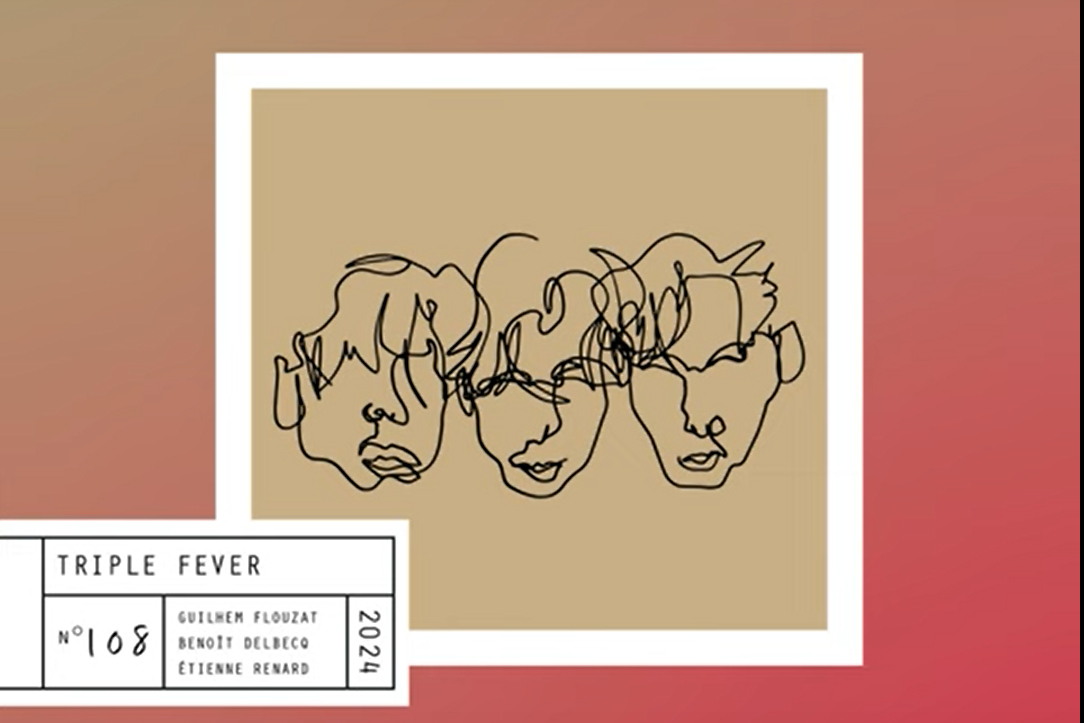Review: Marc Ribot’s Ceramic Dog’s ‘Hope’
|
Getting your Trinity Audio player ready...
|
Nobel physicist Erwin Schrödinger once noted that “[i]f a man never contradicts himself, the reason must be that he virtually never says anything at all.” Perhaps no finer quote could describe Ceramic Dog’s Hope (Northern Spy, 2021), a recording full of paradoxes.
Approaching the album from afar, one sees an optimistic title coupled with a tranquil picture of the earth. With this preconception, the first track, “B-Flat Ontology” provides a jarring juxtaposition. The composition is overtly morose. It is the type of work that could emerge from only the collective depression of a global pandemic. Marc Ribot’s languid guitar meets lyrics calling many different things “amazing” in a way less appreciative of their efforts than derisive of them. Fabulous aspiring rock stars, a woman singing in French, virtuosic guitarists, contemporary poets, and postmodern philosophers are among those demoralized. As the dirge continues, it provides an exaggerated list of disturbingly profane activities conducted by imaginary performing artists. But as this is a piece by Ceramic Dog – the avant-garde community’s answer to The Stooges and the Sex Pistols – it’s clear there has to be more meaning behind the song than meets the eye. Repeat listening reveals the intention of excoriating society for its treatment of art in favor of a participation trophy culture. If everything is “amazing,” that which truly deserves that appellation will be overlooked. The mediocre, or even that worthy of castigation, will just be further propagated.
Similarly, the hyper rant on “The Activist” seemingly attacks all political engagement by creating a strawman opposed to everything. While some of the critiques seem valid – for instance, being against racism – others are taken ad absurdum. The speaker does not accept the lesser of two evils but also refuses the greater evil, the greater good, the lesser good, or the “greater lesser.” Other enemies include Heimlich maneuvers, shoehorns, razors, giraffes, E flat minor, trichords, perfect fifths, hooked noses, hooks, lines, or, really, anything. He refuses to accept sidewalks, preferring to walk on his hands in heavy traffic as a “compromise.” Throughout, the song repeats the phrase “I refuse, I resist.” Taken at face value, it seems to denigrate any political involvement, treating it all as a joke. But a more nuanced perspective suggests that it is advocating for people to pick battles that matter instead of opposing things solely for the sake of being contrarian.
“The Activist” is also fascinating musically. Like much of the band’s other pieces, it is rooted in the urgency of punk. The aesthetic is particularly prevalent due to Ches Smith’s tight cymbal hits. But the influence of hip hop is also apparent. No recordings are sampled, but the constant looping of horn parts and Ribot’s gentle guitar phrases evoke the approach. Further, although at no time Ribot raps, his phrasing and styling of words are, at times, eerily reminiscent of such.
The backend of Hope is markedly opposite its first half. Except for “They Met in The Middle,” lyrics are dropped in favor of instrumentals. Among the finest of these is “Bertha The Cool.” A soft Benson-esque guitar melody floats above a funky drum rhythm, a sparse drum machine, and Shahzad Ismaily’s steady bass. Ribot’s solo is not aggressive, but the underlying groove gives it some bite. The piece is probably best describable as what “smooth jazz” should have been; comforting with lighter sounds and use of technology but without it meandering into the long-winded morass of popish monotony that typifies most “smooth” music. “Bertha” is both fun and different.
The immediately following, “They Met in the Middle,” begins with Darius Jones’ screeching and wailing alto sax, effectively dispelling any misguided belief that the remaining tracks would also be gentle. The song tells the tale of two men on cross-country journeys with a meeting of influences from punk, surf, free improvisation, and Spaghetti Western. Ismaily’s keyboards even provide a quasi-orchestral tinge at times.
One picking up Hope looking for consolation among the chaos of our times is unlikely to find what they seek. Instead, Ceramic Dog’s fourth album is thought-provoking. It requires a listener’s attention and their ability to critically interpret what is before them. In the hands of an appreciative audience, it provides a unique experience that pulls from many diverse threads.
Hope will be available on Northern Spy Records on June 25, 2021.
Personnel: Marc Ribot (guitars, vocals), Shahzad Ismaily (bass, keyboards, backing vocals), Ches Smith (drums, percussion, electronics, backing vocals), Darius Jones (alto sax (6,7)), Rubin Kodheli (cello (8)), Gyda Valtysdottir (cello (8)), Syd Straw (background vocals (3)).
Tracklist: 1. B-Flat Ontology; 2. Nickelodeon; 3. Wanna; 4. The Activist; 5. Bertha The Cool; 6. They Met in the Middle; 7. The Long Goodbye; 8. Maple Leaf Rage; 9. Wear Your Love Like Heaven.




One thought on “Review: Marc Ribot’s Ceramic Dog’s ‘Hope’”